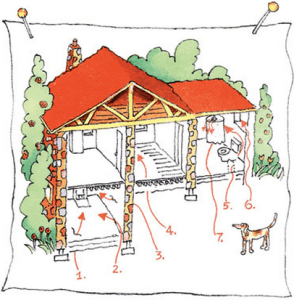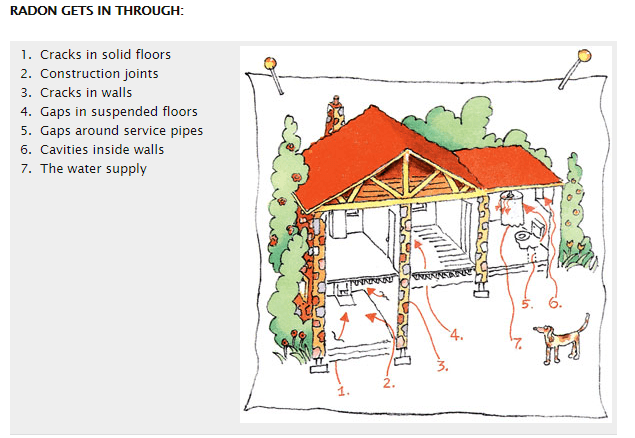Local realtor says theory is good, but the legislation as written could create problems
 A new bill introduced Tuesday by the Montgomery County Council would mandate that local home sellers test for the radioactive gas radon and provide buyers with the results.
A new bill introduced Tuesday by the Montgomery County Council would mandate that local home sellers test for the radioactive gas radon and provide buyers with the results.
The intent of the bill is to help home buyers be aware of the existence of the gas, which can cause serious illnesses and often occurs in single-family homes in the county, according to a memo about the bill provided to council members.
Radon comes from the natural decay of uranium in rocks and soils and typically enters homes through cracks or other holes in the foundation, according to the Environmental Protection Agency.
Council member Craig Rice is the lead sponsor of the legislation. The bill would apply to single-family home sales in the county.
Andrew Goodman, owner of Bethesda’s Goodman Realtors, said Tuesday the theory behind the bill is good because it could provide buyers with needed information about a potentially dangerous gas.
However, Goodman says the bill, as it’s currently written, could result in sellers using radon tests that aren’t held to a high standard.
“How do you know the seller didn’t cheap out on the test?” Goodman said. “How do you reassure the buyer that the findings are actually true? I don’t know the answer to that.”
Goodman said he typically advises buyers interested in a home to have it tested for the gas. This ensures the buyer can trust the results, rather than depend on the seller providing the results most beneficial to his or her interest, Goodman said.
The bill requires sellers to provide the results of a test and a cost estimate for a contractor to reduce the radon to a recommended safe level, but it doesn’t mandate sellers to use only licensed inspectors or a specific test to find out if radon is present.
Radon remediation measures can cost hundreds to thousands of dollars, according to Goodman, meaning homeowners would have a financial interest in the test results being negative.
The EPA recommends testing homes with a short-term test, which can range from 48 hours to 90 days. If the test results show a high level of radon, according to the EPA standards, then the environmental agency recommends a long-term test of more than 90 days to determine year-round average radon levels.
The primary remediation method involves using a vent pipe system and fan to pull radon from beneath the house and vent it outside, according to the EPA.

Places where radon gets can get through homes via the Environmental Protection Agency.
